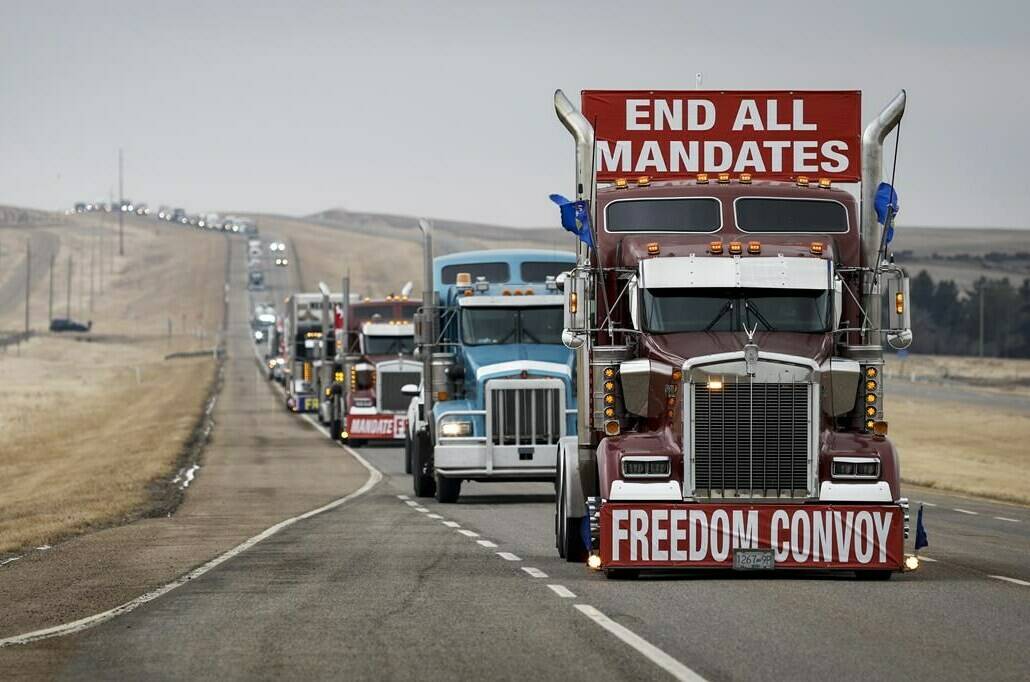The Crown is attempting to streamline the cases of four men charged with conspiracy to commit murder at a border blockade protest in southern Alberta.
Prosecutor Steven Johnston told court in Lethbridge, Alta., on Monday that the Crown is preparing a direct indictment for Christopher Lysak, 48, who has already waived his right to a preliminary hearing so his trial can go ahead.
He requested a trial by judge and jury.
An accused is normally entitled to a preliminary hearing, but the Crown can override that by filing a direct indictment, which has to be approved by the attorney general.
“The Crown has prepared a direct indictment in this matter and it also joins three other gentlemen with the same person,” Johnston told Court of Queen’s Bench Justice Dallas Miller.
The Crown has already indicated it intends to try the four together.
Lysak, who is also charged with uttering threats, possession of a weapon and mischief to property over $5000, was denied bail March 2.
Chris Carbert, Anthony Olienick and Jerry Morin remain in custody as they wait for bail hearings. Johnston didn’t confirm whether direct indictments will be sought for them.
Lysak’s lawyer, Jim Lutz, expressed disappointment that a trial date has yet to be scheduled.
“My client’s been in custody since March 2. We hoped to have it set today,” said Lutz.
The judge asked for assurances that the Crown will be ready to set a date on June 13.
“Hopefully … we will be able to set dates, but obviously I can’t speak to people who are not here,” Johnston said.
He also rejected the possibility of revisiting Lysak’s possible release on bail before his trial.
The protest against COVID-19 vaccine mandates and other pandemic restrictions began at the U.S. border crossing near Coutts, Alta., in late January and lasted for almost three weeks.
Fourteen people were charged after RCMP found a cache of long guns, handguns, body armour, large amounts of ammunition and high-capacity magazines in three trailers.
Police allege a group at the protest was willing to use force if the blockade was disrupted and described the threat as “very serious.”
—Bill Graveland, The Canadian Press
RELATED: Blockade ends at Alberta-U.S. border crossing after more than two weeks

